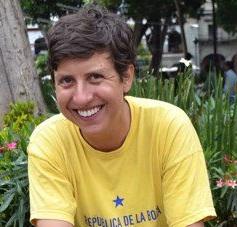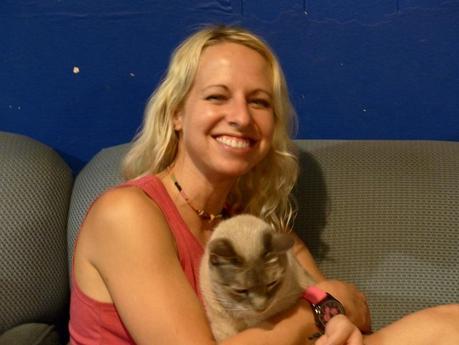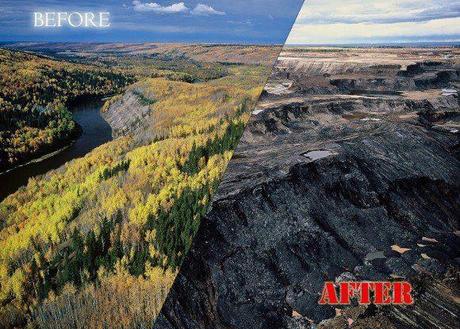from Tar Sands Blockade
On November 19 2012 in East Texas, Lizzie Alvarado, Ben Reynoso and Julie Henry climbed up sixty feet into trees to stop construction of the Keystone XL pipeline and prevent the destruction of a swath of forest. The lifelines supporting their platforms were tied to construction equipment, preventing any work from being done.
After a nine hour stand-off with police and workers, a cherry picker arrived. A crowd of local supporters surged into the road to block the truck but were dispersed when a sheriff emptied an entire can of police-grade pepper spray into the crowd. Check out the video of that incident:
Police used the cherry picker to take all three tree-sitters into custody. Ben, Lizzy and Julie were each charged with misdemeanor criminal trespass, felony mischief, and felony use of a criminal instrument. Altogether, these charges could lead to imprisonment for several years and fines of tens of thousands of dollars.
On August 26th, they will face the judge for the first time for their misdemeanor trespassing charges. Please show your support for these activists by donating to their legal fund.
What we need and what we’ll do with it:
We can’t know for sure how the judge will rule, but we hope $2500 will cover fines and fees for the three tree-sitters. Activists can expect to spend a day in jail for every $100 unpaid.
Please give even if we’ve already reached our goal; If we have any money left over, we’ll use it for the legal funds of other blockaders. Four others were arrested the same day with the same charges but haven’t been given a court date yet. Overall, other pending cases against nonviolent Tar Sands Blockade activists include over 19 felonies and 8 misdemeanors.
Who we are:
Tar Sands Blockade is a coalition of activists and affected community members using nonviolent direct action to directly oppose the Keystone XL pipeline and other forms of tar sands infrastructure. Click here for a list of our actions.
Ben Reynoso

Ben is a 30 year old rabble-rouser and ruckus-maker from San Luis Obispo, California. He came to the blockade in September after spending a year in New York organizing with Occupy Wall St. Currently, he is doing forest defense work in Oregon. He enjoys climbing all sorts of things, getting dirty in the woods, digging latrines, and standing up to the police.
Lizzy Alvarado

Lizzy is a 21 year old filmmaker and student. She’s from Austin, Texas, and is currently entering her fourth year at Stephen F. Austin State University in Nacogodoches. Since moving here in 2010, she has become part of the town’s small but close-knit community.
Lizzy gives back to that community by teaching yoga classes for the university and heading a cycling club which she founded. After learning about the negative effects of KXL and seeing the destruction and disruption of her fellow East Texans’ land and lives, she joined with the Tar Sands Blockade in their journey to stop the Keystone XL pipeline.
Julie Henry

Julie is a biologist and animal rights activist originally from Nashville, TN, but her projects have taken her all over the world. She traveled throughout Southeast Asia to study the environmental impacts of the black market wildlife trade, widespread habitat destruction, and pollution. She spent 2009 – 2010 moving between Thailand and Burma, documenting the smuggling of wild elephants destined to be enslaved in the booming Thai animal entertainment industry. Julie motorbiked her way across the continent through Laos, Vietnam, and Indonesia to document habitat destruction.
Julie moved to Texas to join the Tar Sands Blockade after seeing photos from the 90 day Winnsboro tree sit. She’s been with the campaign ever since. Julie is a rock-climber, caver and all around animal lover. Back home in Nashville she has 3 dogs and 9 cats. “All rescues,” she says.
Why we take action:
Tar sands mining is one of the most ecologically destructive projects in human history.
-If pipelines like KXL are constructed and the tar sands deposits in Alberta are fully exploited, an area of pristine boreal forest – one of the largest forests in the world and one of the most important terrestrial carbon sinks – equal to the size of New York State will be destroyed. For more on tar sands, see Rainforest Action Network’s info page.
-Tar sands pipelines are more dangerous than crude oil pipelines – more likely to burst and more deadly when they do – as evidenced from major spills in Kalamazoo, Michigan in 2010 and in Mayflower, Arkansas in 2013.
-Refining the tar sands produces an even higher load of toxins than normal crude; communities along the gulf coast will be forced to breathe these toxins
-Tar sands produce more carbon than regular oil. James Hansen, former head of NASA’s Goddard Institute and one of the world’s leading climate scientists, said that fully exploiting the tar sands would be “game over for the climate”.
For more information about tar sands and about our organization, visit our website.

